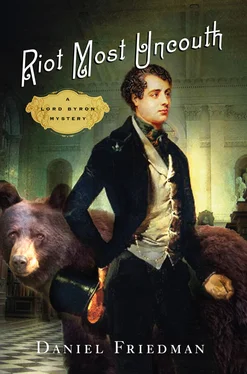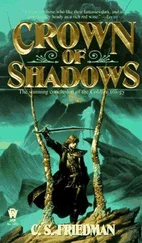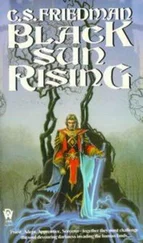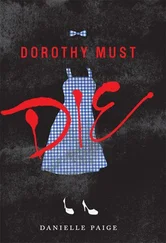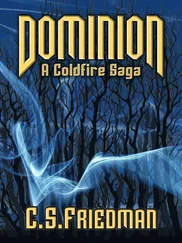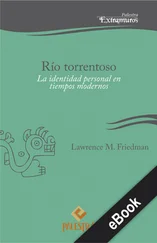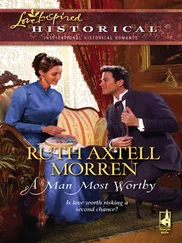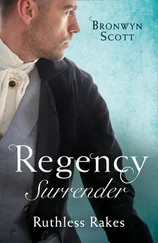Daniel Friedman - Riot Most Uncouth
Здесь есть возможность читать онлайн «Daniel Friedman - Riot Most Uncouth» весь текст электронной книги совершенно бесплатно (целиком полную версию без сокращений). В некоторых случаях можно слушать аудио, скачать через торрент в формате fb2 и присутствует краткое содержание. Год выпуска: 0101, ISBN: 0101, Издательство: St. Martin, Жанр: Исторический детектив, на английском языке. Описание произведения, (предисловие) а так же отзывы посетителей доступны на портале библиотеки ЛибКат.
- Название:Riot Most Uncouth
- Автор:
- Издательство:St. Martin
- Жанр:
- Год:0101
- ISBN:9781250027580
- Рейтинг книги:5 / 5. Голосов: 1
-
Избранное:Добавить в избранное
- Отзывы:
-
Ваша оценка:
- 100
- 1
- 2
- 3
- 4
- 5
Riot Most Uncouth: краткое содержание, описание и аннотация
Предлагаем к чтению аннотацию, описание, краткое содержание или предисловие (зависит от того, что написал сам автор книги «Riot Most Uncouth»). Если вы не нашли необходимую информацию о книге — напишите в комментариях, мы постараемся отыскать её.
Riot Most Uncouth — читать онлайн бесплатно полную книгу (весь текст) целиком
Ниже представлен текст книги, разбитый по страницам. Система сохранения места последней прочитанной страницы, позволяет с удобством читать онлайн бесплатно книгу «Riot Most Uncouth», без необходимости каждый раз заново искать на чём Вы остановились. Поставьте закладку, и сможете в любой момент перейти на страницу, на которой закончили чтение.
Интервал:
Закладка:
I cleared the distance to the window in four strides and drew open the curtain, flooding the room with daylight. Angus was pointing the musket at a large wooden bathing-tub. It stank like Hell’s breath, and insects crawled all over it, and across the puckered, congealed surface of the viscous liquid that filled it.
Angus turned toward me. “Here is all the blood he took,” he said. “Oh my God, there is so much blood.”
And then a figure rose from the bathtub; a tall, lanky man-shape, slick with gore. And as he rose, the putrid blood slopped over the edges of the foul vessel and poured onto the floor. The flies rose up in a black cloud, surrounding the monster and swarming outward, away from his movement. As they took to the air, their muffled buzzing turned into the high-pitched whine of ten thousand pairs of tiny wings beating in unison.
I shouted a warning to Angus, but he was too slow on his feet, and the bloody creature grabbed hold of the musket before the constable could take aim. The weapon discharged uselessly into the wall. The wraith had a knife, and he slid it into Angus just below the rib cage and then drew it down sharply, opening the constable’s torso along his right side. Angus tried to scream, but he had no voice. I heard a wheezing sound coming from the chest wound, and knew that the knife-point had found his lungs. The blood-fiend gave the blade a cruel twist, and Angus’s eyes rolled upward and his legs gave out. He hit his head on the edge of the tub as he fell, and his body collapsed to the floor like an inanimate thing, a sack of flour or a discarded doll.
The killer turned toward me; mad yellow eyes and sharp white teeth flashing in the light from the window. In the East, my father said, there are men, or things like men; things that have conquered death and feed on the blood of the innocent.
“I always knew you’d come back for me one day,” I said to the vampire.
“For you?” it said. “Why must everything always be about you?”
I peered at the naked figure, the long face and neck, and the high peak of his forehead, and the limp, blood-matted strands of hair slicked against the sides of his skull. It was a familiar face, but it was not Mad Jack’s.
“Mr. Frederick Burke,” I said. “Does this mean that I need not fear litigious action from the Banque Credit Francaise?”
“That should be the least of your worries,” he said. “And Burke is not my name.”
He leapt at me, and I pointed my pistol at him and discharged it. I should have hit him without difficulty, but my hand was shaking and the reek of fetid blood was so overwhelming that my eyes were full of tears. I missed; the ball whizzed past his head. He did not even flinch at the sound of the shot. And then my weapon was spent and useless, and he was upon me.
I braced myself against my strong leg; hugged his torso as he hit me, and I twisted in the direction of his momentum; hurling him to the ground. He wrapped an arm around my neck, and I gulped air, choking on the coppery stink. My weak ankle buckled beneath me, and I collapsed on top of him. As I fell, I bent my knee and aimed it at his body. I needed to hurt him. I needed to cripple him. But he was wet and slippery, and I couldn’t hold him in place. He wriggled out of the way, and my knee hit the floor with the force of my weight behind it.
I howled in pain, and he saw in my misfortune an opportunity to wrench himself from my grasp. I recovered my senses as he was trying to get to his feet, so I gripped my spent pistol by the barrel and swung my arm in an arc, aiming to smash his skull with the hardwood grip. Burke attempted to dodge it, but I caught him high on the cheekbone, and he grunted and fell flat on his back. I heaved my body up into a kneeling position, ignoring the shooting pain in my bad leg, and I raised the gun again. If I could hit him hard enough at the spot behind the eye, where the skull was thin, the bone would give way. But he kicked out one of his long legs and struck me in the shoulder. I cried out, and lost my grip on the weapon.
Burke used the moment’s respite this gave him to roll out from underneath me, and I staggered to my feet. He seemed to consider lunging at me again, but instead, he retreated toward the stinking vat; toward Angus and, I realized, toward the unused pistol the constable had been carrying.
Against the wall next to me was a wooden wardrobe, like the one we’d searched in Knifing’s room. I threw my body against it, and it crashed to the floor. I dove behind it for cover. I drew my own second, loaded pistol from its holster at the base of my spine.
Angus was lying on his belly, trying, without much success, to keep his guts inside him. Burke grasped him roughly by the collar of his uniform shirt, and the constable put a hand in the killer’s face to try to stop him. But Angus had little strength to resist; his life was draining out of him, and he could barely draw breath. His wound was making a wet sucking noise now.
Burke managed to roll Angus’s body over, but the pistol had fallen into a puddle of blood, and Angus had lain upon it as he bled. I peeked over my makeshift barricade and saw blood streaming out of the muzzle as Burke lifted it.
So I rose from my cover and the killer pointed his weapon at me; he squeezed the trigger. Nothing happened, of course; the powder was soaked.
“Mine’s dry,” I said.
“Twice you’ve missed me.” Burke’s voice was ragged from the exertion, but betrayed no fear; no emotion at all. “Miss once more, and I shall own you.”
He was straddling Angus and eyeing the hilt of his knife sticking out of the dying man’s belly. If I fired and didn’t kill him, he’d need a second and a half to pull the blade loose, and two seconds more to run the length of the room. If I was very lucky, the dirk might stick a bit in Angus’s flesh and buy me an extra few seconds.
Burke was strong, and he was bigger and taller than I. While he held the blade, I’d be unable to attempt to neutralize his reach by grappling with him. If I could not kill him with my pistol, I probably would not prevail in the struggle that would follow.
“Stay very still,” I said.
He laughed.
Maybe I was about to shoot him; I certainly remember that I tried to steady my aim. And maybe he was about to pounce upon me; he appeared to be coiled to do so. But then, Archibald Knifing appeared in the doorway, holding a gun.
Chapter 39
A little tumult, now and then, is an agreeable quickener of sensation; such as a revolution, a battle, or an adventure of any lively description.
- Lord Byron, from an 1813 journal entry“I see you’ve found the killer, Lord Byron,” said Knifing. “I’m impressed. However did you figure it out?”
“I thought it was you,” I said. “We came here to search your room, and stumbled onto Mr. Burke.”
“My name is not Burke,” said Burke.
“Whoever he is, I am just about to shoot him.” My wrist, battered from the shackles and the stagecoach crash, was feeling sore and kind of shaky. I tried to steady my aim.
“When Lord Byron misses, I will stab him,” said Not-Burke.
“Let’s relax,” said Knifing. “We can all still walk away. We don’t want to commit some irreversible and ruinous act here.”
“It’s already too late,” I said. “Angus Buford is mortally wounded by Burke’s hand.”
“The constable’s death is convenient for all of us,” said Knifing. “He’s got carpentry tools that can break open most locks in town, so he possessed a means of ingress to the private residences where the killings took place. He’s former infantry, so he could have fired the rifle that killed Fielding Dingle. We can all claim to be witnesses to the depravity he committed in these rooms. We can walk away from this.”
Читать дальшеИнтервал:
Закладка:
Похожие книги на «Riot Most Uncouth»
Представляем Вашему вниманию похожие книги на «Riot Most Uncouth» списком для выбора. Мы отобрали схожую по названию и смыслу литературу в надежде предоставить читателям больше вариантов отыскать новые, интересные, ещё непрочитанные произведения.
Обсуждение, отзывы о книге «Riot Most Uncouth» и просто собственные мнения читателей. Оставьте ваши комментарии, напишите, что Вы думаете о произведении, его смысле или главных героях. Укажите что конкретно понравилось, а что нет, и почему Вы так считаете.
